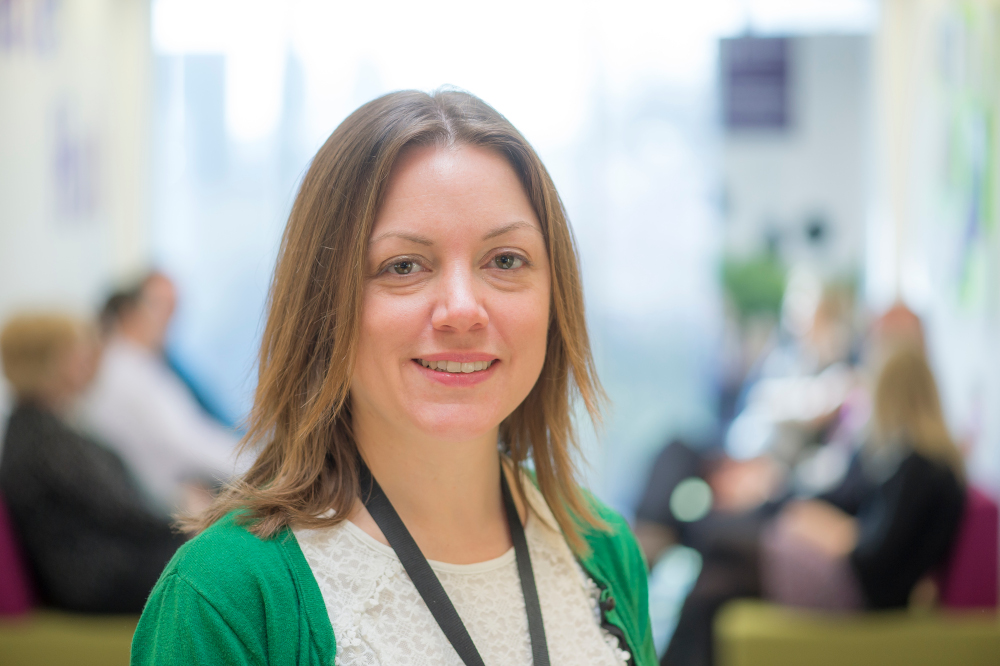Introducing the Centre for Postdoctoral Development in Infrastructure, Cities and Energy; a unique collaboration leading to fantastic developmental opportunities

By Dr Kathryn North, C-DICE Director
The new Centre for Postdoctoral Development in Infrastructure, Cities and Energy, (or C-DICE) is an exciting new programme funded by Research England and led by the Universities of Loughborough, Birmingham and Cranfield, with three core objectives: to create innovative opportunities for postdoctoral development to enhance the research talent pipeline; to accelerate research and innovation to drive progress towards net zero-carbon (NZC); and to capitalise on the investment in world-class research facilities funded by UKRI through the UKCRIC and ERA partnerships.
C-DICE encompasses the full breadth of UKCRIC and ERA facilities operated by an extensive network of 18 leading HEIs, as well as additional partners including industry, research institutes, and organisations responsible for researcher development. This gives C-DICE access to an enormous breadth and depth of expertise in infrastructure, cities and energy research, and importantly will connect postdoctoral researchers to a vast network of organisations and individuals. This will provide unprecedented opportunities for them to connect, to inform and lead their individual development, to contribute to research and innovation on the path to NZC, and to experience innovations in researcher development.
Does this sound good to you? We certainly hope so! We have a newly formed team of experts who are working hard to create the first opportunities in the C-DICE programme. In fact, in every conversation we have had with partners, potential partners, postdocs and principal investigators we have been delighted at the engagement, ideas and excitement around what we are hoping to achieve for C-DICE and we can’t wait to get the ball rolling!
So, why is postdoctoral development so important? In the UK we employ thousands of postdoctoral researchers, with the skills and abilities to make a massive contribution to research and innovation. However, it is probably fair to say that we are not fully harnessing the capability of this community, nor their future potential, and they are the people who are likely to be future leaders in industry, HEIs, policy-making and beyond. It is in our interests to support and develop them. It is of course good for the individual researchers too, to gain a breadth of opportunity and development and to create networks that may not be readily available or tailored to their career stage, and will stand them in good stead for the future.
The C-DICE programme: Realising Net Zero Carbon, Transforming Post-Doctoral Development
C-DICE is developing a range of world-class opportunities for postdoctoral development, building on the expertise of partners, informed by the future skills needs of industry, and providing evidence for policy changes by funders such as UKRI to better support this community.
The vision of C-DICE is to simultaneously drive innovations towards NZC whilst providing opportunities for researchers to develop their deep technical skills, knowledge and networks. There will be a range of ways to get involved, from participating in interdisciplinary sandpits to attending one off technical training events, or undertaking a placement or secondment at a C-DICE partner, or securing a C-DICE postdoctoral fellowship. We will run hackathons using data sets accessible through our partner network, deliver training in collaboration with partners and train postdocs to train others in key areas such as big data analytics. Regular policy showcase events will create and capture the impact from all of this work, and business engagement activities will encourage postdoctoral researchers to build links and understand industry needs. The precise details of these opportunities are being developed now, some will be in the virtual world and we hope to run some in person before too long. We are consulting with the community and our partners to shape the programme to ensure it will meet the needs of postdoctoral researchers themselves. Those engaging with the programme will become part of a unique research ecosystem, and will benefit from being part of multiple networks of opportunity.
The key questions we are looking to answer to shape the C-DICE programme include; what should be the focus of C-DICE where we can make the biggest impact on driving NZC in the infrastructure, cities and energy domain? How can we work with the UKCRIC and ERA partnerships to make the best use of the facilities, and how can they work together? What are the skills needed to create the sustainable and resilient change needed across industry, households and transport (for example) to arrive at NZC? What do postdoctoral researchers need to enable them to succeed their careers? And what are the barriers to their participation? And last, but not least, how can we put support structures in place to ensure future career success for all, to ensure a diverse workforce that can successfully respond to addressing the major global challenge that we face.
If you would like to hear more about C-DICE and our planned activities, please visit our website www.cdice.ac.uk and sign up for our newsletter here.
We hope to see you at a future C-DICE event where you can help shape our net-zero carbon future!